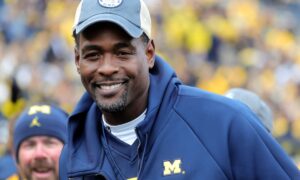Tanking is defined in the Merriam-Webster dictionary as “making no effort to win; losing intentionally.” In the NBA, and also in the NFL, this has become a bit of a common practice. Teams start losing on purpose in order to get a higher pick in the following draft. It’s bad. The worst, actually.
I’ve got three reasons for you as to why NBA teams shouldn’t tank.
Creating Losing Tendencies
When coaching a budding team, it is the job of the coach to help them take the next steps. Whether it’s keeping up with the current scheme, or altering it as needed. It’s about rotations, and making sure the right guys are on the floor together. It’s a process to build a winner. And one that does in fact take time.
By losing games on purpose, teams create losing tendencies. They aren’t focused on winning, and so star players are resting all the time. Players with less experience are getting more reps. And while that could potentially be a good thing, they aren’t being taught how to close out games. And when the time comes where they actually have to start winning, they won’t know how.
Every now and then a LeBron James or a Zion Williamson might come around, so perhaps a team is enticing themselves to lose a lot to bring them onboard. But if they do that, the chances would likely be that the players around them from the prior years won’t know how to step up or take responsibility. We did see that in Cleveland when LeBron first came back.
The 76ers found a way to make it work, ending up with Ben Simmons and also Joel Embiid. But usually, not trying to win will create a lot of losing tendencies and make it hard to win game when there is immense pressure.
Ruining the Competition
There are plenty of great teams in the NBA, and that is the case at any given moment in the league. But they are able to stat-pad wins against these tanking teams, winning without having to exert more than 36 minutes of effort and just playing the subs in the fourth quarter. And when teams try and lose, the star player gets hurt and misses an extra 5-10 games before being brought back.
At the end of the day, this is a business. People pay big money to come watch the games. And there have been instances where perhaps, a ticket was bought to come watch LeBron. And he wasn’t playing because it was a ‘rest’ day. And while this isn’t tanking, it’s an active effort to try and lose. Guys don’t play back-to-backs like they used to always do, as load management has come into play. But, it’s bad for the product.
This is more for a team like the Suns who benched Eric Bledsoe for the final month a few years ago in order to play younger guys more minutes. And in doing so, improve their draft standing. It’s bad for the game when the Jazz and Wizards play, and Russell Westbrook is just ‘resting’ and not injured in any way, shape, or form.
Bad for the Vets
Look, if a team wants to tank and doesn’t care about paying fines, they should go ahead and do it. But, they’d be losing the season ticket-holders who pay to see them 41 times a year. They would be hindering any sort of progress that was made earlier in the year. And, the veteran players generally tend to get the raw end of the deal.
If a player has been in the league long enough to be considered a veteran, chances are that they have done pretty well for themselves. They have maintained a place in the best basketball competition in the world. But if they up on a team actively trying to lose, it’s bad for their career. They’ll miss out on wins, minutes, and when they get to their next team, they won’t be able to bring much.
Some players are literally just “locker room” guys like Udonis Haslem in Miami, Dahntay Jones and Kendrick Perkins when they were in Cleveland, and Nick Collison at the end of his long OKC tenure. Two of those four just found a home and never left. The other two, Perk and Jones, had been around winning for so long, they could literally get paid millions to just ‘mentor’.
Buyouts tend to happen at times for players who don’t want to be there, but more often than not, it’s likely a struggle to try and practice, knowing you won’t even see the floor.
Do the Sensible Thing, and Try Not to Tank
Look, tanking can’t be stopped. Teams want to build a young empire. New companies try and acquire young, up-and-coming talent. The same is true in the NBA. But, there are other ways to go about it.
There are guys that go undrafted and then turn out to be championship-type players. Some are second-round picks. And sometimes, a player is unhappy in point A, and you can trade one draft pick, or even two, to bring him over.
But do the sensible thing. Play the game properly. Don’t lose on purpose. Appease your fans. Instill trust. DON’T TANK!










